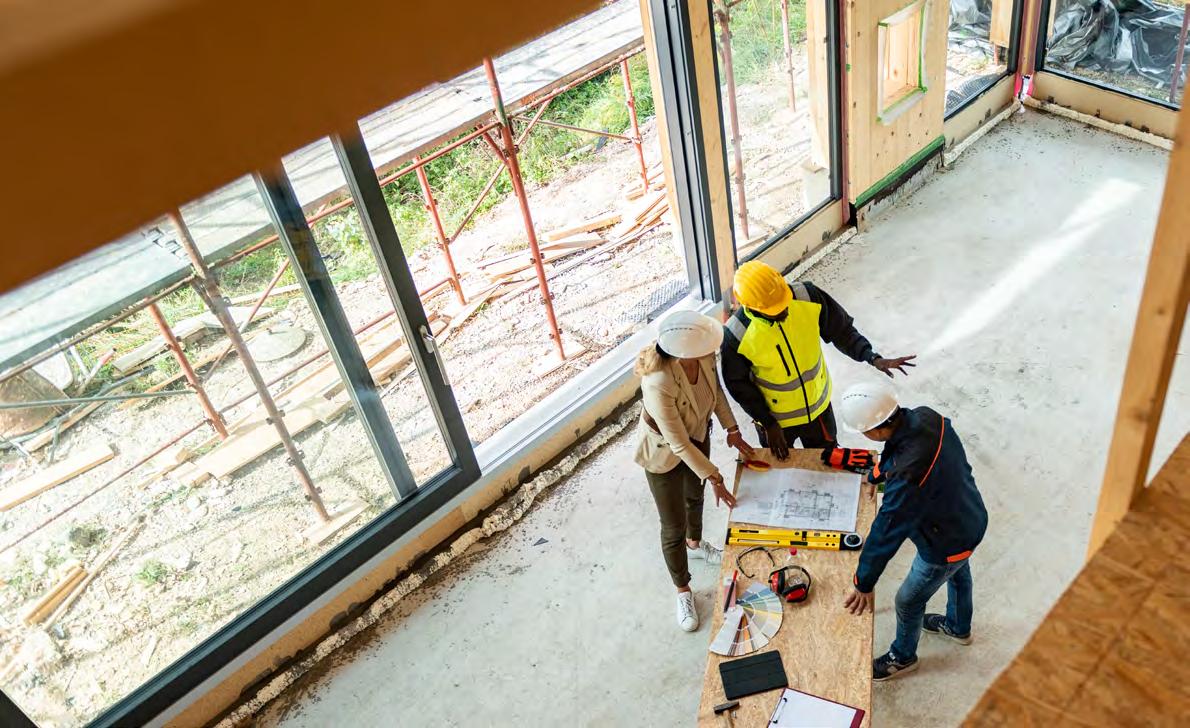
3 minute read
2 biotech ➔ see
2. BIOTECH
INNOVATIONS FROM EUROPE’S “BIOTECH VALLEY”
The need to make the economy and industrial production sustainable presents a major challenge to the world. Revaluing secondary flows and developing new production methods are essential.
Flemish biotech companies assume a leading position in this evolution. Innovative research institutions, universities of international level and locally specialised clusters are one of the driving forces behind this transition. TINEKE VAN HOOLAND Deputy Secretary-General bio.be/essenscia
KASPER MOREAUX CEO Mycelia
All players from the entire ATMP value chain are present here. Our region must further strengthen cooperation between the various links in the chain.”
For example, in the northern region of Belgium there is unique expertise in cell, gene and tissue therapies (Advanced Therapy Medicinal Products). TiGenix, for example, was the first company in Europe to market such an ATMP product. Many spin-offs follow this example, which means more and more diseases can be treated or cured.
This pioneering role is no coincidence, says Tineke Van hooland, Deputy SecretaryGeneral of bio.be/essenscia, the Belgian federation of companies active in biotechnology and life sciences. “I like to call this region the biotech valley of Europe.
THE AMAZING POSSIBILITIES OF MUSHROOMS
Mycelia is also a good example of Flemish expertise in biotech. The company produces all stages of mycelium from fungi: mother cultures, master spawn and spawn — both from edible mushrooms and from fungi to create myco-materials. So not just mushrooms, but exceptional species with specific characteristics.
Mycelium is the underground, root-like network of fungi that can also be produced in a small environment and in controlled conditions. Mycelium grows on waste like coffee crush or grain chaff. It is also biodegradable, making it an interesting raw material for packaging, as an alternative to polystyrene.
According to CEO Kasper Moreaux, Mycelia also has the expertise to use mycelium as a biological pesticide. “For example, a fungus can tackle the overpopulation of voracious insects and thus secure the harvest.”
The substance extracted from pycnoporus sanguineus is used, among other things, for medicinal applications.

In Ghent, a complete footpath has been laid with circular clinkers, made from collected CO2.

FROM CARBON TO NEW RAW MATERIAL
The reuse of secondary flows and waste streams is also a crucial aspect of the entire chemical and life sciences sector, says Saskia Walraedt, director of essencia PolyMatters.“The steam emitted by one company can be an interesting raw material for another company in the vicinity.
Flanders has really taken on a pioneering role in this area. Take for example the Antwerp@C project, an initiative of Air Liquide, BASF, Borealis, ExxonMobil, INEOS, TotalEnergies, Fluxys and the Port of Antwerp. This explores how carbon can be captured and stored, and then turned into new raw materials.
Together with the company, the Flemish knowledge centre VITO developed a process to make clinkers of collected CO2. These so-called “carbon capture and storage” (CCS) and “carbon capture and utilization” (CCU) are real technologies of the future.” SASKIA WALRAEDT Director essenscia PolyMatters
Nowhere else are top science and industrial entrepreneurship as closely intertwined as in Ghent. Through cooperation between partners such as the University of Ghent, the Research Institute for Agriculture, Fisheries and Food (ILVO), the Flemish Institute for Technological Research (VITO), the Flemish Institute for Biotechnology (VIB), Inagro, CAPTURE (Centre for Advanced Process Technology for Urban Resource recovery) and Bio Base Europe Pilot Plant, the largest agro and biotech campus in Europe was created. This is where successful industrial companies such as Plant Genetic Systems, CropDesign, Devgen and Aphea.Bio are emerging.
The biotech ecosystem in Ghent also develops new solutions for Life Sciences to improve the lives of patients and citizens. It makes Ghent the place to be for conferences in industrial biotech, agro and foodtech and life sciences biotech.
Would you like to know more about your conference in Ghent in these areas? GentCongres is at your service.
www.visit.gent.be/en/gentcongres






